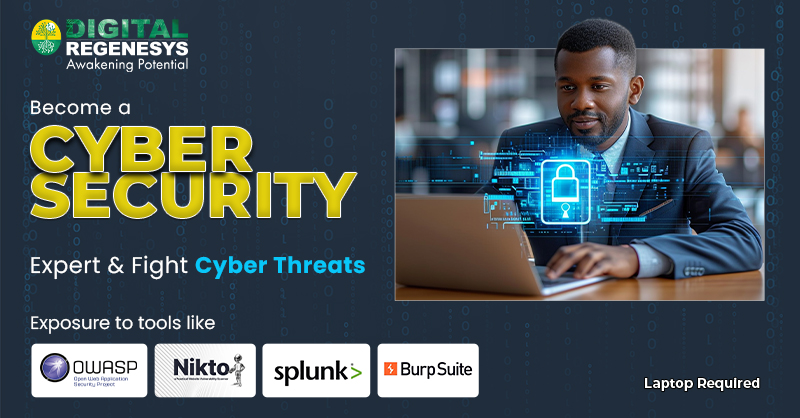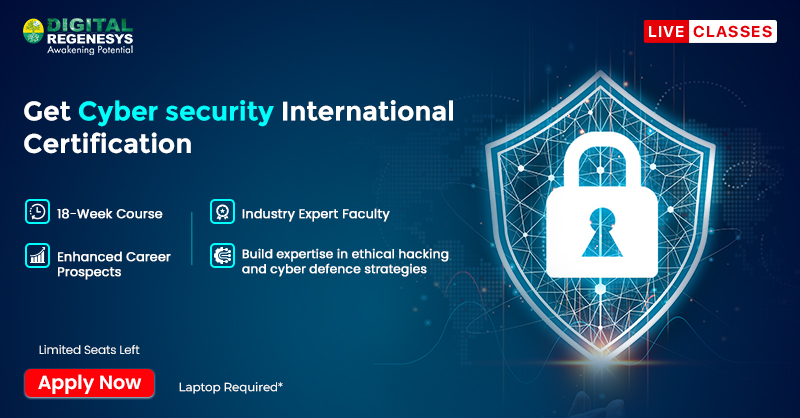The Fastest Path to Becoming an Ethical Hacker

Ethical hacking, also known as penetration testing, involves identifying and addressing security vulnerabilities before malicious actors can exploit them. With the digital landscape expanding rapidly, the ability to detect weaknesses and secure systems is highly valued. For individuals skilled in hacking or looking to transition into Cybersecurity, learning ethical practices allows them to pursue a legitimate career. In South Africa and globally, demand for ethical hackers is growing as businesses and government agencies face increasingly sophisticated cyber threats.
In this article, we explore the fastest path to becoming an ethical hacker, outlining skills, training, and career-ready steps.
Why Ethical Hackers Are in High Demand
The rapid rise of cyber threats has made ethical hackers an essential component of organisational security. Companies and government institutions increasingly need skilled professionals who can proactively detect vulnerabilities, anticipate attacks, and implement effective countermeasures.
Ethical hackers not only protect sensitive data but also help minimise financial losses, reputational damage, and operational disruptions. Their role is critical in ensuring that digital systems remain secure in an increasingly connected world.
Key reasons for the high demand include:
- Increasing Cybercrime – Cyber attacks such as ransomware, phishing, and malware incidents are growing in frequency and sophistication, creating a pressing need for trained ethical hackers.
- Variety of Professional Roles – Ethical hackers take on multiple responsibilities, including penetration testing, vulnerability assessments, system audits, and security consulting, providing comprehensive protection for organisations.
- Global Relevance Across Industries – Ethical hackers are in high demand across various sectors, including banking, telecommunications, healthcare, and government, underscoring the universal need for Cybersecurity expertise.
Read more on Aims and Objectives of Cybersecurity here

Core Skills You Must Master First
Before embarking on the journey to become an ethical hacker, it is crucial to understand that tools alone cannot make you proficient. Mastering core technical skills provides the foundation for ethical hacking, allowing you to identify vulnerabilities, design exploits safely, and communicate findings effectively. These skills form the building blocks of any accelerated learning roadmap.
Some skills that aspirational ethical hackers must master include:
- Networking Fundamentals (TCP/IP, ports, routing) – Understanding network protocols and communication flows allows you to detect weaknesses and simulate attacks accurately.
- Operating System Security (Linux, Windows) – Knowledge of file permissions, processes, and system configurations is essential for testing environments safely.
- Programming and Scripting (Python, Bash, PowerShell) – Automating tasks, writing scripts, and understanding exploit code increases efficiency and effectiveness.
- Web and Application Security (OWASP Top 10) – Identifying vulnerabilities like SQL injection, cross-site scripting, and broken authentication is central to penetration testing.
- Communication and Reporting Skills – Translating technical findings into clear, actionable reports ensures organisations can respond to threats appropriately.
Read more on How to Build a career in Cyberscurity here
Fast-Track Learning Options
Accelerating your ethical hacking career requires a balance of structured instruction, self-practice, and mentorship. A professional learning environment provides direction, while self-paced labs and community engagement reinforce knowledge. Combining these approaches ensures you can quickly acquire practical skills and stay updated with emerging threats.
Effective learning pathways include:
- Enrolling in a Course – The Digital Regenesys IITPSA-accredited Certification Course in Cybersecurity provides a structured approach to network security, ethical hacking principles, and practical labs, all designed for accelerated learning.
- Self-Paced Labs – Interactive environments, such as Hack The Box or TryHackMe, provide realistic attack simulations.
- Mentorship and Webinars – Experienced professionals offer guidance, industry insights, and troubleshooting support.
- Community Engagement – Online forums and security groups provide opportunities for discussion, collaboration, and exposure to real-world problems.
Read more on 7 Cybersecurity Layers here
A 6-Month Fast-Track Roadmap
A structured roadmap ensures learners gain competence efficiently while maintaining legal and ethical standards. Dividing the journey into clear milestones helps track progress, balance theoretical and practical learning, and prepare for professional roles.
The table below provides learners with a 6-month plan that can help them explore Ethical Hacker positions:
|
Month |
Focus Area |
Practical Tasks |
|
Month 1 |
Networking & Linux basics |
Set up virtual machines, learn TCP/IP, and practise Linux commands. |
|
Month 2 |
Cybersecurity fundamentals & ethics |
Study the CIA triad, POPIA, legal and professional responsibilities. |
|
Month 3 |
Web & system vulnerability practice |
Explore OWASP Top 10, practice penetration tests in legal labs. |
|
Month 4 |
Certification prep (Security+/CEH) |
Attend workshops, revise scenarios, and complete practice exams. |
|
Month 5 |
Portfolio building & competitions |
Participate in CTFs and bug bounties, and document your findings professionally. |
|
Month 6 |
Certification & job readiness |
Sit for exams, finalise portfolio, and apply for junior ethical hacker roles. |
Read more on What is Vulnerability in Cybersecurity here
Building Experience Quickly
Hands-on practice distinguishes effective ethical hackers from theory-focused learners. Practical experience develops problem-solving, risk assessment, and reporting abilities. It also demonstrates competence to potential employers, which is especially important for accelerated learning pathways.
Ways to gain experience:
- Virtual Labs – Utilise platforms like Hack The Box, TryHackMe, and VulnHub to safely simulate real-world attack scenarios.
- Open-Source Tools – Learn Kali Linux, Metasploit, Burp Suite, and Nmap to perform scans, exploits, and analysis.
- Capture-the-Flag (CTF) Competitions – Participate in time-bound challenges to test problem-solving and teamwork skills.
- Bug Bounty Programmes – Report security vulnerabilities legally for recognition and rewards.
- Portfolio Documentation – Maintain reports, lab notes, and responsible disclosures to showcase skill and professionalism to employers.
Legal and Ethical Boundaries
Ethical hacking is only meaningful when conducted within legal and professional limits. Ignoring these boundaries risks prosecution and damages career prospects. Understanding regulations ensures your skills are applied responsibly and safely while gaining trust in professional circles.
Listed below are guidelines for compliance that ethical hackers should follow:
- Follow South African Cyber Laws – Understand POPIA and the Cybercrimes Act to protect personal and organisational data.
- Work Within Authorised Scope – Only test systems for which you have explicit permission.
- Responsible Disclosure – Report vulnerabilities through approved channels, avoiding public exposure of sensitive information.
- Document Approvals – Keep records of permissions and scope agreements to demonstrate professional accountability.
Read more on Information Gathering Methods in Cybersecurity here
Common Mistakes to Avoid
Even fast-track learners can encounter setbacks if they overlook foundational aspects of ethical hacking. Avoiding these pitfalls ensures faster, safer progression into professional roles.
Mistakes to avoid:
- Skipping Fundamentals – Tools are ineffective without a solid understanding of networking, systems, and security principles.
- Practising on Unauthorised Systems – Testing without permission can lead to legal action.
- Neglecting Soft Skills – Professional reporting, communication, and ethical judgment are as important as technical skills.
- Ignoring Continuous Learning – Cyber threats evolve rapidly; staying updated is essential.

Conclusion
Becoming an ethical hacker is a rewarding and high-demand career path that requires a combination of technical knowledge, hands-on practice, and strict adherence to legal and ethical standards. By building core skills, following a structured roadmap, and gaining practical experience through labs and competitions, learners can transition quickly from aspiring hackers to professional, responsible Cybersecurity specialists. The Digital Regenesys Cybersecurity Certification Course provides a structured, IITPSA-accredited pathway that equips you with the knowledge, practical skills, and credentials needed to launch a career in ethical hacking.
Begin your ethical hacking journey today by enrolling in the Digital Regenesys Cybersecurity Course and take the path towards exploring ethical hacking.
Last Updated: 10 October 2025